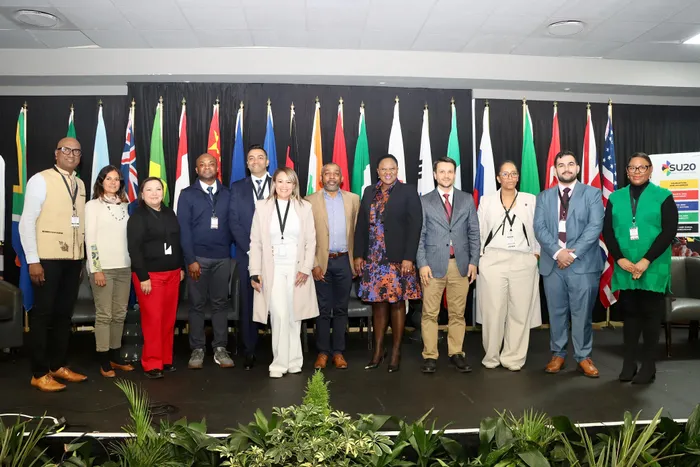Insights gained: Reflections from the Startup20 South Africa experience

SU20 International Secretariat.
Image: Supplied
In April 2025, South Africa assumed the leadership of the Startup20, an official Engagement Group of the G20. For a continent long brimming with entrepreneurial energy, this was more than a symbolic appointment, it was an opportunity to show that innovation is not imported to Africa; it is built here.
Over the past six months, Startup20 South Africa brought together founders, policymakers, investors, and ecosystem enablers with a shared mission: to strengthen the role of Startups and MSMEs in driving sustainable growth. The engagement group is structured around five key Taskforces, Foundation and Alliances, Finance and Investment, Inclusion and Sustainability, Trade and Market Access, Township and Rural Entrepreneurship, each addressing real-world barriers faced by entrepreneurs. These taskforces explored crucial areas such as access to early-stage funding, inclusion of women and youth in innovation, sustainable business models, and the revitalisation of township and rural economies. Through this work, policy recommendations were informed not by theory, but by the lived realities of those building businesses on the ground.
Each taskforce grappled with challenges that every entrepreneur knows well: securing early-stage funding, accessing markets, navigating regulatory hurdles, and embedding sustainability beyond corporate slogans. Discussions also explored intra-African trade, highlighting the need for initiatives such as a Startup passport to enable entrepreneurs to access continental trade opportunities.
Engagements throughout the year revealed both progress and persistent challenges. Many startups and MSMEs continue to face difficulties in accessing finance and scaling operations within constrained infrastructure environments. Yet, these obstacles underscored a deeper truth - African entrepreneurs consistently transform constraint into creativity.
This Thursday, the Startup20 South Africa Recommendations Handover marks a major milestone in the country’s G20 Presidency journey. The recommendations while reflecting on the achievements of the past year reaffirm the role of startups in sustainable development for global collaboration. With the finalisation of the policy process, a central question has emerged: have these global conversations resulted in meaningful policy change? This underscores South Africa’s commitment to positioning startups as key drivers of economic growth, job creation, and digital transformation. As the first African country to assume G20 leadership in this engagement group, South Africa is proud to have driven consensus-based recommendations
The journey of Startup20 South Africa has been defined not only by policy but by people. The entrepreneurs who participated have proven that innovation in South Africa and as a continent is not peripheral, it is central to solving global challenges. As South Africa hands over its recommendations to the G20 Presidency, the work continues to ensure that the policies shaped under its leadership translate into long-term impact for startups across the continent and beyond.
The next chapter belongs to governments, investors, and founders to carry this vision forward. For South Africa, this is not the end of a term, it is the beginning of a new era of global entrepreneurship, powered by the conviction that every startup, no matter where it begins, has the potential to change the world.
This journey stands as a testament to what is possible when entrepreneurial spirit meets policy engagement.
SU20 Chairperson, Vuyani Jarana and SU20 Project Lead, Carmen Rudd.
*** The views expressed here do not necessarily represent those of Independent Media or IOL
BUSINESS REPORT